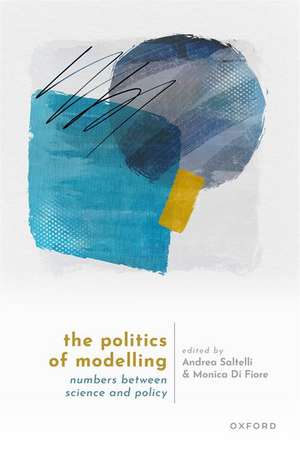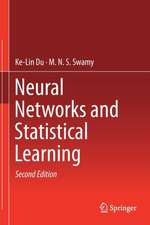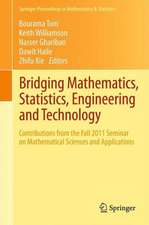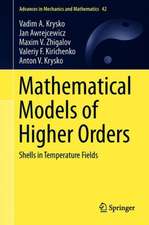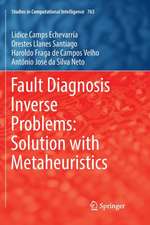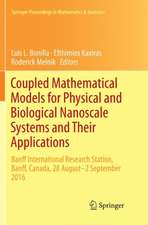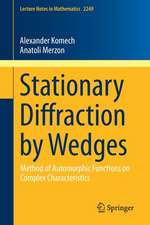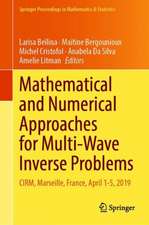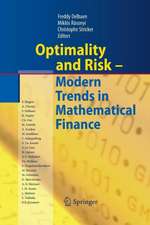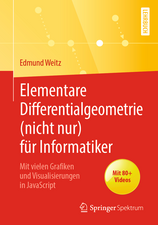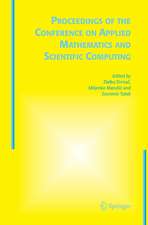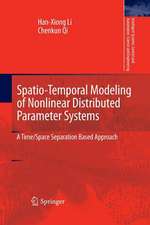The Politics of Modelling: Numbers Between Science and Policy
Editat de Andrea Saltelli, Monica Di Fioreen Limba Engleză Hardback – 25 aug 2023
Preț: 500.36 lei
Preț vechi: 715.21 lei
-30% Nou
Puncte Express: 751
Preț estimativ în valută:
95.75€ • 99.84$ • 79.58£
95.75€ • 99.84$ • 79.58£
Carte disponibilă
Livrare economică 17-22 februarie
Preluare comenzi: 021 569.72.76
Specificații
ISBN-13: 9780198872412
ISBN-10: 0198872410
Pagini: 272
Dimensiuni: 160 x 240 x 20 mm
Greutate: 0.59 kg
Editura: OUP OXFORD
Colecția OUP Oxford
Locul publicării:Oxford, United Kingdom
ISBN-10: 0198872410
Pagini: 272
Dimensiuni: 160 x 240 x 20 mm
Greutate: 0.59 kg
Editura: OUP OXFORD
Colecția OUP Oxford
Locul publicării:Oxford, United Kingdom
Recenzii
The strong principle for the real world is: never use a model if you don't know its limitations and side effects. In fact, you must know what it can't do for you better than what it can do. I am glad this project is taking place: a long-awaited examination of the role-and obligation-of modeling.
The Politics of Modelling: Numbers between Science and Policy is a breath of fresh air and a much-needed cautionary view of the ever-increasing dependence on mathematical modelling in ever-widening directions. The five aspects of modelling that should be 'minded' are a sensitive summary of factors that should be considered when evaluating any mathematical model.
The methods by which power insinuates itself into models, and facilitates their portability and amendments, are diverse and sometimes insidious. And that's one reason why the range of cases explored in The Politics of Modelling are so illuminating and why we need to pay attention to its authors. [...] Good scholarly books usually do one of two things. They dig into the details of something so that we understand it better, see it in a new light. We often call this depth. Or they bring things together in some creative amalgamation that allows us to make new comparisons, to see patterns we hadn't before seen. This we call breadth. It is rare when a book does both things well. This one does.
A modern Rip Van Winkle, awaking from a century of scientific slumbers, would be dismayed to find so much emphasis on models and so little talk of scientific laws and facts. Although Rip's dyspeptic view of models now seems misguided, a call for caution is very much in order. Modelling tools have consequences both for science and for a larger public, taking in historical, sociological, and moral perspectives as well as technical, scientific ones.
My decades of modeling operation and interpretation of results have been greatly expanded by the terrific perspective proffered in The Politics of Modelling.
The book provides inspiration, has a reflective but constructive tone, and exemplifies the politics of modelling in a clear way.
...this book stands as a pioneering work in a field that has historically focused on statistical and algorithmic methods for generating numbers.
Recommended. Advanced undergraduates through faculty; professionals.
Accompanied by numerous references, the essays offer examples of models, their interpretations, and uses that have gone astray.
If the road to change starts with recognition and self-awareness, then the book has done a significant service to the modelling community by naming the biases and calling out some of the dilemmas and risks deeply rooted in the modelling institution....I strongly recommend you take this book and embrace it for an intellectually stimulating learning and critical reflection experience where you will find yourself often nodding in agreement, and sometimes challenged by the depth and breadth of ideas.
The Politics of Modelling: Numbers between Science and Policy is a breath of fresh air and a much-needed cautionary view of the ever-increasing dependence on mathematical modelling in ever-widening directions. The five aspects of modelling that should be 'minded' are a sensitive summary of factors that should be considered when evaluating any mathematical model.
The methods by which power insinuates itself into models, and facilitates their portability and amendments, are diverse and sometimes insidious. And that's one reason why the range of cases explored in The Politics of Modelling are so illuminating and why we need to pay attention to its authors. [...] Good scholarly books usually do one of two things. They dig into the details of something so that we understand it better, see it in a new light. We often call this depth. Or they bring things together in some creative amalgamation that allows us to make new comparisons, to see patterns we hadn't before seen. This we call breadth. It is rare when a book does both things well. This one does.
A modern Rip Van Winkle, awaking from a century of scientific slumbers, would be dismayed to find so much emphasis on models and so little talk of scientific laws and facts. Although Rip's dyspeptic view of models now seems misguided, a call for caution is very much in order. Modelling tools have consequences both for science and for a larger public, taking in historical, sociological, and moral perspectives as well as technical, scientific ones.
My decades of modeling operation and interpretation of results have been greatly expanded by the terrific perspective proffered in The Politics of Modelling.
The book provides inspiration, has a reflective but constructive tone, and exemplifies the politics of modelling in a clear way.
...this book stands as a pioneering work in a field that has historically focused on statistical and algorithmic methods for generating numbers.
Recommended. Advanced undergraduates through faculty; professionals.
Accompanied by numerous references, the essays offer examples of models, their interpretations, and uses that have gone astray.
If the road to change starts with recognition and self-awareness, then the book has done a significant service to the modelling community by naming the biases and calling out some of the dilemmas and risks deeply rooted in the modelling institution....I strongly recommend you take this book and embrace it for an intellectually stimulating learning and critical reflection experience where you will find yourself often nodding in agreement, and sometimes challenged by the depth and breadth of ideas.
Notă biografică
Andrea Saltelli is based at Pompeu Fabra University in Barcelona. His most recent papers have tackled sensitivity analysis and auditing, the ecological footprint, the future of statistics, the rationale of evidence-based policy, the crisis of science and the post-truth discussion. Andrea gives courses in sensitivity analysis, sensitivity auditing, science integrity, and the ethics of quantification. He has recently published on the role of science in processes of regulatory capture.Monica Di Fiore is a researcher at the Institute for Cognitive Sciences and Technologies of the Italian National Research Council (CNR) of Rome. She has dealt with innovation and social acceptance of technologies.Her most recent work focuses on open science and responsible research and innovation, the reproducibility crisis, science-based normative capture, and the sociology and ethics of quantification. She recently contributed to a manifesto published by Nature on the quality of mathematical models.
